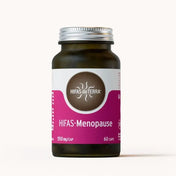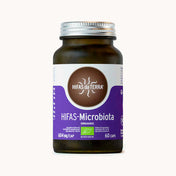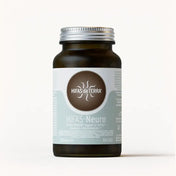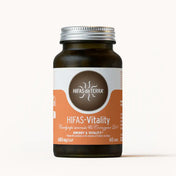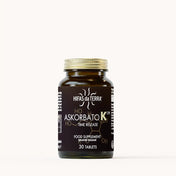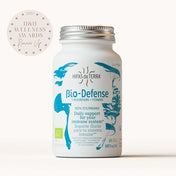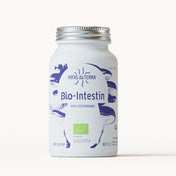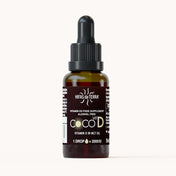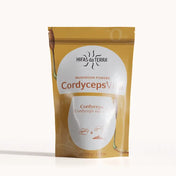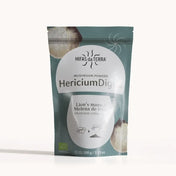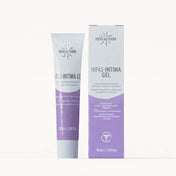Posted on 06/09/2023. Author: Hifas Editorial Team
- Menopause: an overview
- What are the first signs of menopause?
- At what age do you start?
- What symptoms cause menopause?
- What can be done to alleviate problems?
- Natural remedies for menopause
- How to handle stifle and night sweats
- Risks and benefits of hormonal therapy
- Summary: appropriate measures can improve the quality of life during menopause
- References
Defining the new stage of women
In everyday language, the period that precedes the menopause It is known as Premenopause (or perimenopause). Menopause itself is considered the last period of bleeding in the life of a woman. Menopause is, therefore, the end of the fertile phase of life. For many women, this phase of life, often difficult, Start in the mid -forty. At that time, the female organism begins to reduce its progesterone production. Progesterone is a sex hormone belonging to the group of progestogens. Then, the estrogen levels, female sex hormone, descend. There are two estrogen categories:- Stronation
- Estradiol
- Oestriol
- Premenopause: menstrual periods vary in intensity and regularity. Irritability also increases. This phase, which can last up to 10 years, ends with the last menstrual period (menopause).
- Perimenopause: Perimenopause begins during premenopause. It takes place throughout a period of about six years. It ends approximately one year after the last menstruation and includes the classic symptoms of menopause.
- Postmenopause: During this last phase, the female body has become accustomed to the new hormone constellation. The problems refer.
How to know if it's menopause?
The decrease in progesterone secretion causes Appearance of certain signs that indicate the beginning of menopause. The warning signs of menopause are common. Include shorter cycles (25 days instead of 28) and irregular periods. The absence of progesterone secretion also causes certain symptoms, such as tense breasts, pain before menstruation or abdominal swelling. During this intermediate stage, known as premenopause, women can still get pregnant, even more complicated than before.How long does menopause last?
Each woman lives menopause differently. Since menopause It is a finite state in which the woman can no longer menstruate, we talk about the previous stage: the Premenopause. It lasts an average of 4 years and is considered finished when the woman stops menstruating For at least 12 months.What is the average age of menopause?
The average age of menopause is between the 45 and 55 years, according to the World Health Organization (WHO). Even knowing the mechanisms that underlie over its arrival, menopause cannot be determined precisely. Several factors are responsible, to a greater or lesser extent, for the differences observed from one woman to another. Very often, when we talk about differences between individuals, we look for a triad of factors: genetic, environmental and doctors. Once again, menopause is no exception to the rule: - Genetic factor: Although there is currently no clear explanation, the age of menopause is advanced or delays in some families. - Environmental factors: A healthy lifestyle tends to delay the real date of menopause. Instead, bad habits, such as smoking, can advance it. - Medical factor: Drugs that affect the hormonal state of women influence the appearance of menopause. For example, hormonal therapy or cancer chemotherapy can interfere in the natural course of menopause.Another way to deal with menopause: how to relieve symptoms?
There are several approaches to Relieve the symptoms of menopause and whose common goal is to recover physical and emotional well -being. Sufficient physical activity, a healthy and balanced diet and adequate body weight are considered useful. A study evidence that a Vegetable diet Based on soybeans can help significantly reduce the appearance of hot flashes at the end of menopause. Relaxation techniques They can also be effective. Among them are breathing exercises, meditation and yoga. In general, a healthy lifestyle favors well -being, which becomes even more important in menopause. If you suffer stifling frequently, you must dress according to him "layer look"This means dressing how the skin of an onion, with several layers. This will allow you to react quickly and easily to the hot flashes.Natural resources of interest in menopause
Prebiotics
The microbiota is changing throughout the life of women and menopause is no exception. In general, the decrease in the production of certain hormones has an impact on the type and quantity of bacteria that make up the intestinal flora. Given the strong connection that exists between microbiota, digestive health and emotional health (stress management, insomnia, sadness, etc.), it is always advisable to maintain the balance of the microbiota. The Prebiotics They are the food of the bacteria that naturally make up our digestive tract and that help avoid associated imbalances, for example, to hormonal changes.How to handle stifles, night sweats and others
Although not all women experience symptoms in menopause, more than 80% suffer from physical or psychological symptoms. As a general rule, Vasomotor disorders occupy the first place and include symptoms such as suffocation and night sweats. It is estimated that more than 80% of menopausal women suffer from suffocation. Other symptoms may appear:- Sleep disorders
- Humor changes
- Depressive moods
- Sexual disinterest
- Vaginal dryness
- Bladder weakness
- Increased hair loss
- Greater risk of osteoporosis
- Weight gain (especially abdominal fat)
Risks and benefits of hormonal treatment
To relieve the symptoms of menopause, there has been the Substitute hormonal therapy (THS). The objective of this therapy is Relieve problems caused by the lack of estrogen. Or only estrogens in monotherapy are replaced, or one is administered Combination of estrogen and progesterone. The effect on the hot flashes is fast, so you can expect relief in a short space of time. It is important to undergo a Complete gynecological exam and to a consultation. Next, the doctor and the patient must evaluate the benefit/risk relationship, since since the end of the 1990s, studies have shown that the prolonged use of THS can Cause an increase in breast cancer risk. This applies to both estrogen use and the combination of estrogens and progestogens. Currently it is assumed that THS does not directly trigger breast cancer, but stimulates the growth of cancer cells that are already present. In addition to the highest risk of breast cancer, the risk of ovarian cancer and uterine mucosa also increases. Hormonal substitution also increases the Risk of heart disease, thrombosis and stroke. By These reasons, experts advise against hormonal replacement In the long term. It is interesting to observe that the form of administration determines the risk: hormonal patches are considered less risky than to take tablets.Implants during menopause: the youth chip?
Various centers and specialists begin to talk about testosterone micro-impersones to reduce the symptoms linked to climacterium. Although this hormone is fundamentally related to the male sex, a decrease in its production has been detected from the 45-49 years, so the release of it through the phyto-implants is one of the proposals that you begin to speak. In any case, the recommendation when we talk about health always goes for consulting with a specialist doctor who, knowing your particular case, will guide you in the best way to manage the changes of this new stage.Summary: Keys to improve the quality of life during climacteric
Many women consider menopause A difficult period of your life. However, with adequate measures, symptom management can greatly facilitate the consequences of hormonal changes. The most common symptoms, such as suffocation, sweating and sleep problems, make well -being and performance decrease. Substitute hormonal therapy (THS) can help, but there are Think twice. The problem: its prolonged use increases the risk of various types of cancer and other diseases. For those who want a natural remedy, it is important Exercise, maintain reasonable body weight and follow a healthy diet. The studies show that a plants -based diet can significantly reduce the appearance of hot flashes. Sleep disorders They are also one of the most common symptoms of menopause. Science is investigating whether the fungus Reishi (Ganoderma lucidum) It can have a positive effect on sleep and the central nervous system. An animal study has provided the first indications of a reduction in the time necessary to reconcile sleep and a longer duration of it. These results must be confirmed in the future in humans.- Nanette Santoro, C Neill Epperson, Sarah B Mathews, NCBI, "Menopausal symptoms and their management", uninter: https://pubmed.ncbi.nlm.nih.gov/26316239/
- Ramandeep Bansal and Nelam Aggarwal, NCBI, Menopausal Hot Flashes: A Concise Review ", Unter: https://www.ncbi.nlm.nih.gov/pmc/articles/pmc6459071/
- Neal D Barnard, Hana Kahleova, Danielle N Holtz, Tatiana Znayenko-Miller, Macy Sutton, Richard Holubkov, Xueheng Zhao, Stephanie Galandi, Kenneth d R Setchell, NCBI, "A dietary intervention for vasomotor syomotor syomotor symptoms of menopause: Controlled Trial ", Unter: https://pubmed.ncbi.nlm.nih.gov/36253903/
- Fiona C Baker, Laura Lampio, Tarja Saaresranta, Päivi Polo-Kantola, NCBI, "Sleep and Sleep Disorders in the Menopausal Transition", Unter: https://pubmed.ncbi.nlm.nih.gov/3009875/
- Chunyan Yao, Zhiyuan Wang, Huiyong Jiang, Ren Yan, Qianfei Huang, Yin Wang, Hui Xie, Ying Zou, Ying Yu, Longxian LV, "Ganoderma Lucidum Promotes Sleep Through a Gut Microbiota-Dependent and Serotonin-Involved Pathway in Mice", Unter: UNTER: UNTER: UNTER: UNTER: https://pubmed.ncbi.nlm.nih.gov/34211003/
- Xiangyu Cui, Yonghe Zhang, NCBI, "Neuropharmacological Effect and Clinical Applications of Ganoderma (Lingzhi)", Unter: https://pubmed.ncbi.nlm.nih.gov/31777017/


